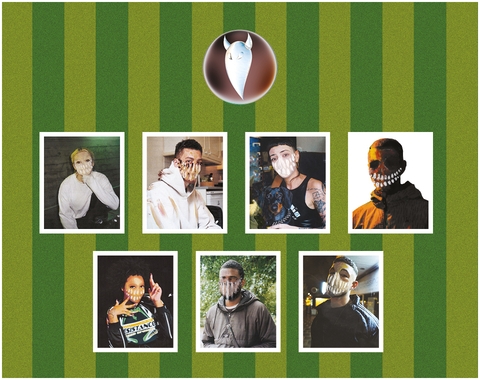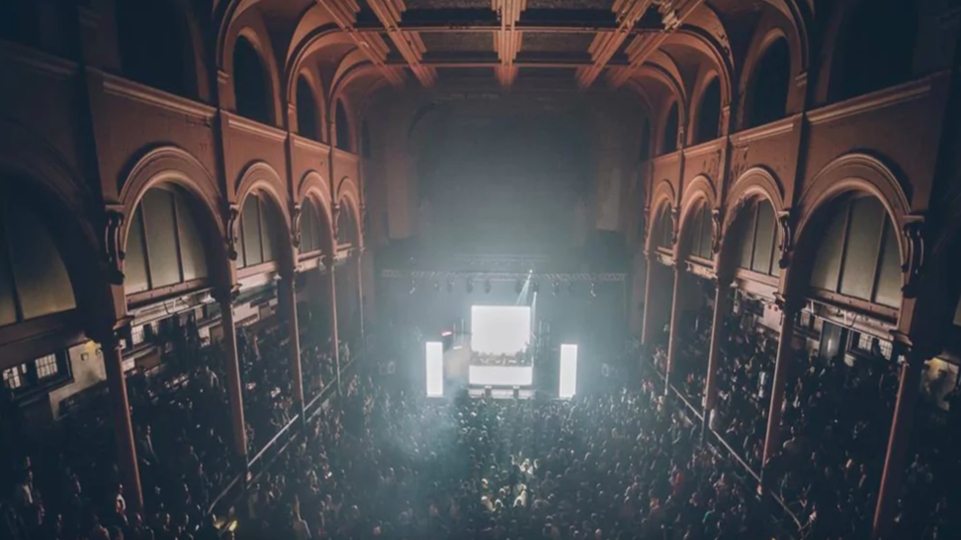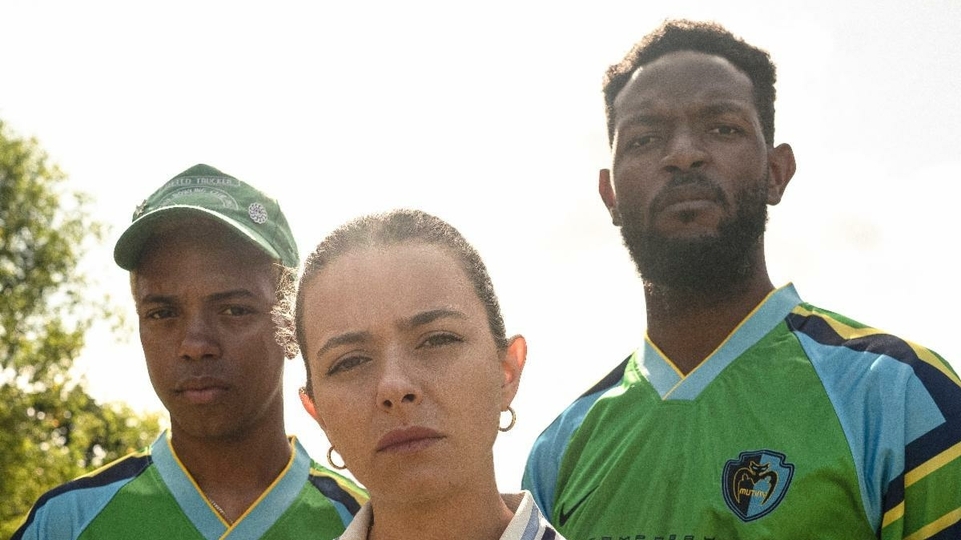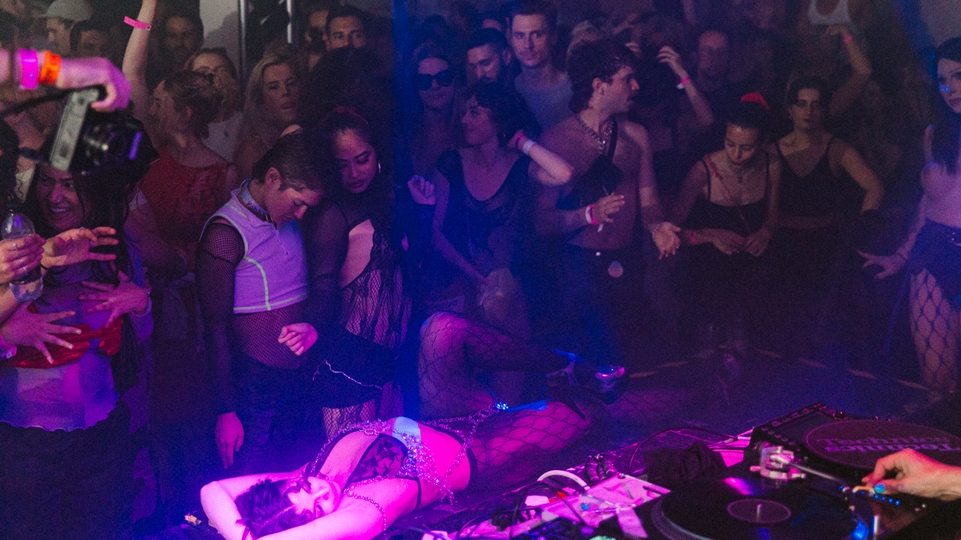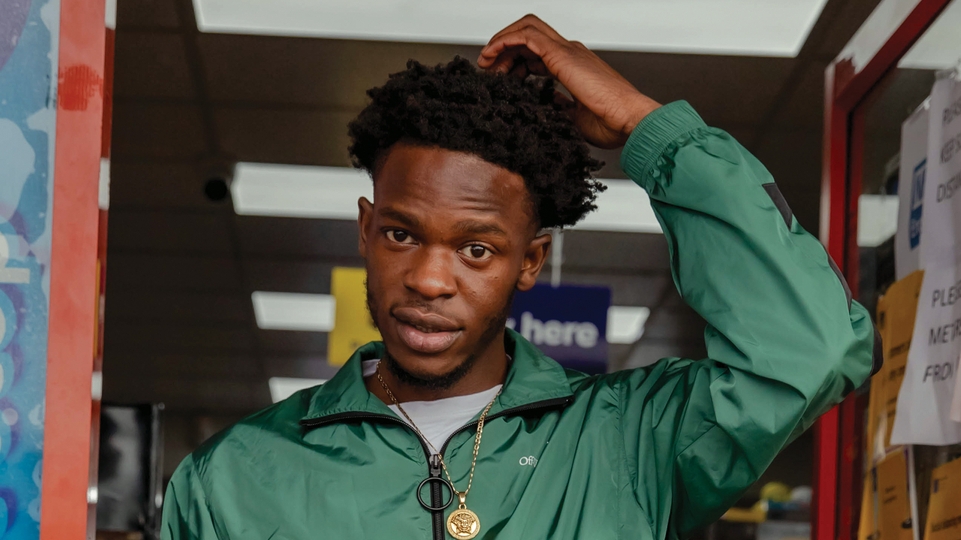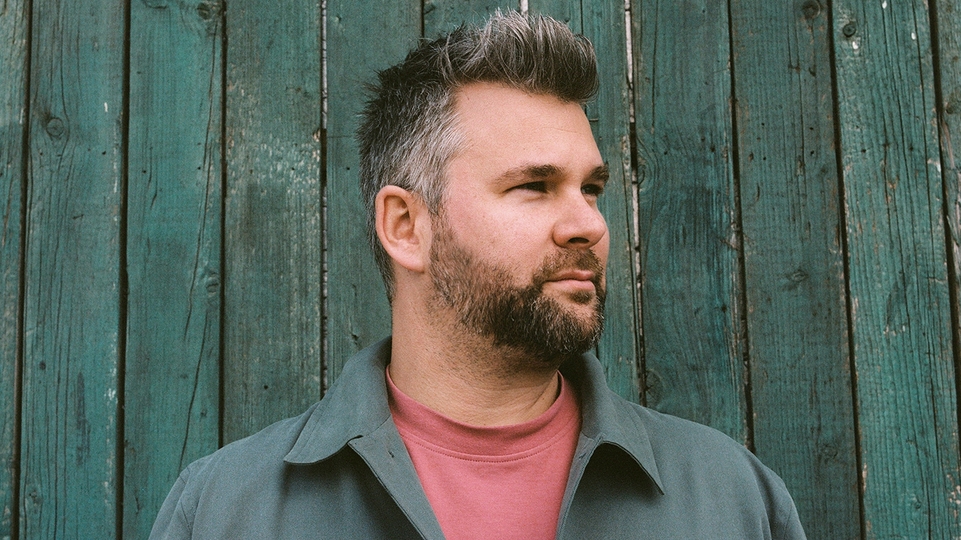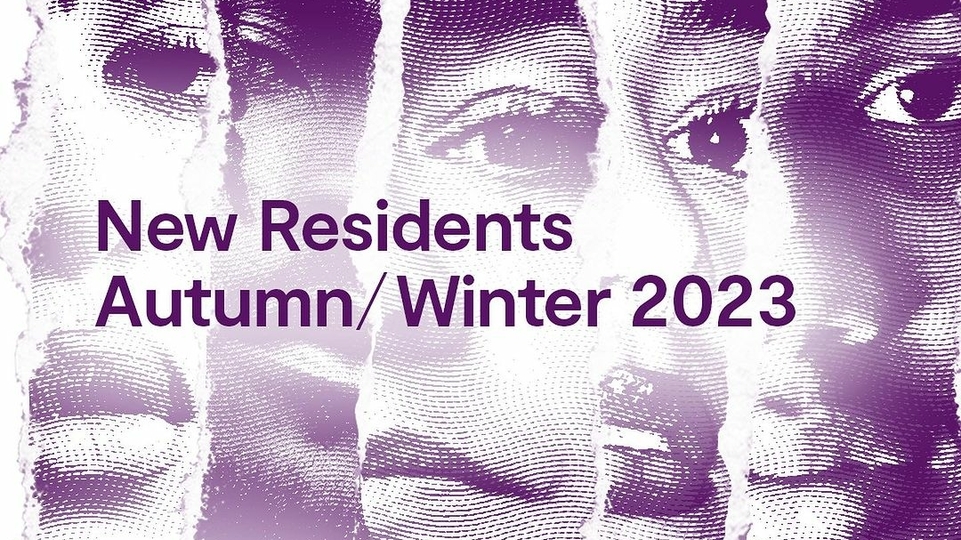
SHERELLE: force of nature
SHERELLE is the most exciting young DJ in the UK. Championing a ferocious fusion of jungle and footwork, she brings together artists from either side of the Atlantic via her DJ sets and shows on BBC Radio 1 and Reprezent. As a gay Black woman at the top of the game, she’s become an inspiring figure for communities often marginalised in the scene, and after a year of downtime to reset and plan, Ben Hindle meets her in North-East London to find out why she’s more ready than ever to be a force for change
"I’ve been playing football since I was five years old. I used to scrunch up balls of paper that I stole from the printer and pretend to be Ian Wright.” Sherelle Thomas is beaming with the kind of enthusiasm that comes from talking about an obsession. “In primary school, I held a record for most goals scored in a season.”
Though the 27-year-old’s passion for the Beautiful Game inspired a trip to her local big club, Leyton Orient FC, for her DJ Mag cover shoot, it’s not the lifelong love that’s put her on the cover in the first place, and not the one we’ve met her in a bustling Caribbean restaurant in Walthamstow to chat about. Sherelle Camille Thomas — known simply as SHERELLE — is the most talked about, in-demand DJ in the UK right now.
In less than two years, she’s gone from Academy level — the toast of conversations between London’s in-the-know, underground heads — to an international star player. She’s made a splash in Europe and the US, scored a year-long residency on BBC Radio 1, was voted Breakthrough DJ at DJ Mag’s Best of British awards in 2019 and now stands powerfully on our cover.
She’s toured the nation as part of roof-raising supergroup 6 Figure Gang, co-founded one of the most exciting labels of 2020, Hooversound, and is on the cusp of launching a new label and starting her own journey as a producer. And she’s done it all with a turbo-charged concoction of footwork and jungle that bounds along at such a voracious tempo (“anything at or above 160[bpm]” as she’d say) that it seems impossible not to be swept along with her.
Sherelle may not be eyeing up a football career anymore, but her two passions are inextricably linked. Both were bestowed upon her by family. Growing up in North-East London, she was sworn in as an Arsenal fan (though whether that’s because her cousin played for one of the Gunners’ youth squads or her mum fancied Ian Wright is up for debate). She grew up through some of Arsenal’s best years, in particular the legendary 2003-04 season, when the side went unbeaten in the Premier League — earning them the title The Invincibles.
More than just something to boast about to her friends at school, that team made a lasting impression on a young Sherelle. When we ask about her footballing heroes, she reels off the players’ names as if it were yesterday. Thierry Henry is particularly inspiring. “He was so confident, the way he carried himself,” she says. “He was so fucking slick and suave; just very good at what he did, but you can tell that he trained a lot.” Though perhaps not realising it at the time, she took life lessons from the squad. To go 38 games unbeaten is considered by many as one of the greatest achievements in the history of English football, and shows what people can achieve when they put their minds to something. It instilled in Sherelle an insatiable work ethic — “Even if it pains me to be up at 4am to try and do a mix,I know the benefits of being able to do that”—and taught her the importance of being comfortable with herself as a person.
Speaking to Sherelle now, or even seeing one of her DJ sets, it’s hard to imagine her not being the bright-eyed artist brimming with confidence before us. Talking at a million miles an hour, going off on long tangents only to neatly pick back up right where she left off, putting on silly voices to mimic her critics (and even her younger self for that matter), her energy is infectious.
In the booth it’s a similar story. She’s commanded rooms from XOYO to Panorama Bar with her high-octane selections and larger than life character. But she readily admits that level of confidence has taken a while for her to reach. Both in her personal life as a queer Black woman, and as a young DJ suddenly thrust to the forefront of British electronic music.
“If I didn’t shave my hair off, I don’t think I would be as flamboyant,” she says. “I think you find confidence over time. And you always have to own your shit. Once it gets going, you have to own it... because once I had a lot of eyes on me, I got all these bookings — but if you fuck up, those bookings are gonna go.”


But she hasn’t fucked up, and those bookings haven’t gone. Sherelle has only grown more capable, and demand for her was still skyrocketing when COVID-19 pushed pause on gigs for 2020. Though it was her set at Boiler Room in February 2019 which — despite some tedious controversy — put her on the radar of the wider electronic music scene and prompted a rash of new interest from promoters, that’s only a small part of the story behind Sherelle’s success.
There have been many ‘moments’ along the way, but behind the viral videos and whirlwind sets is a DJ determined to represent those who lack representation, and elevate the artists she loves. (Just look at the box-outs throughout this cover feature, which Sherelle was adamant that she shares with some of her favourite labels.)
Sherelle has known how to control a room with music since her schooldays. Like football, her obsession with music was first sparked at home by her mum and her sister. “They were such embarrassingly good dancers, and they love listening to music really loudly,” she recalls warmly. “If it wasn’t MTV, it was VH1. If it wasn’t Jodeci ‘Freek’N You’, it was Aaliyah — which I was happy with because I didn’t find it uncomfortable.”
But as much as she got on with her family’s taste, “I really loved when they were away from the TV, because they would be controlling the music. When they were away, I could control the music.” R&B and hip-hop were the staples, but she liked Brit-pop and indie too. She’d stay up late and watch metal bands and post-watershed versions of tracks. (“Khia ‘My Neck, My Back’, I saw that when I was really young and I was like, ‘Wooooah! Hold up — questions!’”) And like so many in the noughties, she got swept up in the wave of illegal downloads. Limewire was her weapon of choice, and by the time she was at secondary school, she had everything from alt-rock to grime crammed onto her iPod, picking tracks to fit the mood of the next house party.
By the mid-’00s, Arsenal were causing Sherelle too much heartache, and music took over as her primary passion. “You can trust music,” she says. “You listen to certain tracks because they make you feel a certain way.” As Sherelle got older, radio became her main source for new sounds — especially BBC Radio 1. Zane Lowe, Annie Mac and Nick Grimshaw were on regular rotation, but it was Mistajam who had the biggest impact.
“Being one of the only Black people on Radio 1 when I was growing up playing electronic dance music, which was not necessarily associated with Black people at the time... He was playing the biggest dubstep tracks from Benga and Skream all the way to Flux Pavilion and Caspa. Honestly, it was a mind- changing thing,” she enthuses. “Mistajam’s fucking cold. He’s a huge part of why I really love radio the way I do. I don’t think there’s been enough people telling him how monumental his presence has been within British radio.”

Radio has played a central role in Sherelle’s own rise to prominence. It was at South London station Reprezent that she first made her name — but even that almost didn’t happen. After playing lower tempo stuff for a year and a bit, she’d become bored, and by 2015 she’d stopped putting the effort in with her show. On the brink of being kicked off the station, it was a newfound love for Chicago footwork that reinvigorated her.
Having first heard the frenetic style in a 2012 Machinedrum mix — which she still cites as one of her biggest influences — she’d discovered one of the genre’s founding fathers, DJ Rashad, and nosedived into the history of the sound. Called in for a meeting with the station manager, Sherelle buzzed with excitement about her idea for a new, footwork-focused show. “I was completely mad, I was so energetic!” she remembers. Another then-little known DJ, Naina, was in the meeting and backed the idea — “Naina saved my life!”
Sherelle and Naina have been inseparable ever since. They warmed up for The Prodigy at Brixton Academy in 2017, and this year launched their joint label Hooversound with Hyroglifics & Sinistarr’s ‘BS6’ EP: a warp-speed, multi-hit combo that’s been pummeling soundsystems ever since. To date, the label has released four EPs, incoporating a wide spectrum of club-focused sounds; from turbo and ghettotech to dubstep, gqom and most recently hardcore jungle, delivered by rising stars Private Caller and Mani Festo.
Back at Reprezent, Sherelle was given four weeks to prove herself with the new footwork show — she passed with flying colours. Those early days saw her pick up support in the footwork community, and she points to the likes of Juke Bounce Werk and Hyperdub — the latter of whom booked her for revered night Ø early on in her career: “I remember walking into the room when Dillinja was playing and there was just this instant calm that came over me: like, ‘I can play whatever the fuck I want!’”
Two crews, We Buy Gold and 160 Feet Deep, gave her essential, early gigs, and she gives props to the likes of Jamfransisco, Anna Morgan and Bell Curve, Kush Jones and DJ Swisha “and everyone that’s been on my show,” she says. “The footwork journey has been a very beautiful journey.”
It’s telling that those names come from camps on both sides of the Atlantic. Sherelle has become a lynchpin in that connection, helping usher in a second wave of footwork in the UK after it initially blew up here, when Planet Mu and Hyperdub picked up Chicago originals DJ Rashad, DJ Spinn and Traxman in the early 2010s. Over the past two years, her sound has evolved too, incorporating a distinctly British element: jungle. She’s now a transatlantic, hybrid DJ who’s found her own sound.
Her epiphany moment came at a gig for Beneath’s No Symbols party in 2018, when she first saw just how devastating combining the two genres could be. She found herself playing uplifting footwork like DJ Rashad & DJ Manny’s ‘R House’ alongside Sully’s modern jungle tearout ‘Soundboy Don’t Push Your Luck’, and two of her all-time favourite tracks: Foul Play’s ‘Finest Illusion’ (the Legal Mix, for the heads out there) and the Foul Play remix of Omni Trio’s ‘Renegade Snares’ — “the perfect songs”, as she puts it. The crowd went mad, and Sherelle knew she’d reached a turning point.
“As soon as I did that gig I was like, ‘Why am I wasting my damn time not mixing these two together all the time?’ As I’ve developed, I’ve really embraced the UK side of me, but also that both genres are of Black origin,” she says. “It never occurred to me until well late: demographic wise [it was] the same kind of people, young boys and girls from Chicago and London; even though it’s not just London, it’s around the UK. It’s inner-city people making this music,” she says, “and in both genres you need to know your shit.”

“What is the point of DJing if you’re not promoting other people? I’m not going up there to be a god.”
Knowing her shit is of the utmost importance to Sherelle. She’s a history buff that will dig as deep as a catalogue goes. Even the name of her Hooversound label is a subtle attempt to get people to research the history of rave. Throughout our conversation she references early works by jungle and footwork pioneers. Have you downloaded Rashad’s ‘Party Pleaser’s’ EP? Do you realise the unfathomable scale of 4Hero’s impact on UK dance music? Jungle in particular is a scene where knowledge of the old school is often prized above all else — and not always in the most friendly fashion. We wonder if, as a young artist who seemingly burst onto the scene so suddenly, have the heads been welcoming?
“Not necessarily everyone has,” she admits, “but that’s okay, because I will see them at gigs, and the more they see me at gigs they’ll realise that I’m not this 15-minute-fame kind of person...
“And I do get it — when you’re older, you don’t move to people in the way that younger people do... they don’t have to do that because they’ve obviously worked so hard that people know who they are. I don’t take it personally, because if I did it would seriously affect my own work ethic.”
There have been overwhelmingly positive experiences too. She remembers getting props from Fabio and Grooverider at a gig, and many in the contemporary jungle scene are extremely supportive. Rupture bosses Mantra and Double O have welcomed Sherelle with open arms, booking her for a main room set at Corsica Studios last year, where she more than proved her chops to a room full of diehard junglists. She shouts out Astrophonica head Fracture and DJ Flight, MC Chickaboo, Sweetpea and Decibella from the EQ50 crew, who are focused on making the jungle and drum & bass scene more open to womxn and non-binary people. “There’s a lot of people within that scene that are so pure at heart and need to be protected at all costs,” she says.
Sherelle accepts that her hybrid style won’t please everyone, but also that it doesn’t need to. “I know I can’t be accepted sometimes within a purist jungle sense because I’m not a purist junglist. There are so many different facets to me, in representing footwork and anything above 160 — the hybrid stuff — so I can’t be mad at it,” she says. “I’m just trying to be me and I hope that when the next newcomer comes in, someone who’s also not a purist, they take them in more with open arms.
“Would I maybe have had an easier time if I was a guy? I know that for sure — abso-fucking-lutely!” she continues. “If I was the same bitch but just a gay guy, I know that I would have been taken in a lot easier. The way I carry myself, all this other shit, I do think it’s the thing that is stopping people from wanting to reach out.”
No matter what she’s playing, Sherelle endeavors to put other artists first. Even when building her name on Reprezent, she would only post the mix from her guest online afterwards, putting the focus on them instead of her (and forcing people to listen live if they wanted “the full experience”). For her it’s simple: “What is the point of DJing if you’re not promoting other people? I’m not going up there to be a god.”

The past year has seen Sherelle continue this good work, but on an even bigger platform. In September 2019 she joined the BBC Radio 1 Residency series, a position she held onto in the changeover this year. Over that time she’s championed new school guests like Mantra, New York’s Kush Jones and Exit Records staple Fixate, along with icons such as DJ Spinn and RP Boo, Storm and Kode9. Her run has prompted many calls for the BBC to give her a full-time show, and though she admits she’d snap up the opportunity, it’s not something she’s spending energy on directly pursuing.
“Obviously it’s a massive childhood dream, but my main thing has always been about supporting my music and making sure that people get the coverage. I’ve got a lot of other stuff to do that I should never, ever lose focus on. I would love a full-time show, but it depends on timing. With the residency, if it ends, I need to make sure that I’m able to still amplify as many people as possible. Get people their PRS money,” she continues. “You get like, what, £100 per play when you’re on there? Fuck that, come on, I’m there. Literally playing people left, right and centre. That changes people’s lives.”
This November saw Sherelle back on Radio 1 for another reason; to deliver an Essential Mix. Her two-hour addition to the hallowed series sums up her sound immaculately. It’s a relentless assault on the senses; chaotic Amens raining down one minute, propellent footwork rolling out the next. Tribute is paid to legends like Traxman, DJ Nut Nut and Deep Blue and modern innovators like Tim Reaper, Yazzus and INVT (pronounced Innovate), who Sherelle stresses is a hot tip for 2021. The mix also puts weight behind a sound Sherelle has been getting into a lot this year: jungle tekno.
She’s found a new passion where the hammering breaks of jungle meet techno’s four-to-the-floor pulse and hyperactive hardcore tropes. And not to put too fine a point on it, but the mix also features Sherelle’s first ever track — called, you guessed it, ‘Jungle Tekno’. Influenced by Coco Bryce, polish juke-and-rave duo PZG & Dubsknit’s ‘We Rob Rave’ project, London label Dred Collective and, perhaps surprisingly, Lone, it’s an entrancing number full of hardcore stabs. An applause- worthy first effort, particularly for someone who only started producing nine months ago.
Every day since lockdown began, Sherelle has been reading, learning and tinkering away at music production. Though she’s had offers to “executive produce” other people’s music before, she always thought it rude to waltz in and tell experienced producers what to do without doing it herself first. “I know for a fact that I’m gonna potentially get a hard time from some people, because they’re gonna be like, ‘Oh, you just learnt it in under a year’ — but I’ll let the music speak for itself. I’m confident enough that it’ll be of a good standard by the time it comes out, and I’m sitting on quite a bit of music to roll out next year.”
Sherelle’s primary concern was that she learnt how to produce by herself, and turned down offers of outside help. But what about her partner LCY? She is, after all, a respected producer, and the pair were living together for most of the first lockdown. “She’s a massive influence,” Sherelle admits. “We always talk about why her music’s amazing. Sometimes she doesn’t really realise it and it’s annoying because it’s like, ‘You’re actually so sick!’”
She launches into an enthusiastic breakdown of why she loves LCY’s productions: their ASMR-like quality, her ability to hear frequencies and elements Sherelle doesn’t even notice— “She’s a fucking wizard!” When it comes to Sherelle’s music though? “I was fortunate that she was nice about the fact that I wanted to learn on my own. She pointed out the basics and then she looked me in the eye and said, ‘You need to do it on your own’, and I was like, ‘That’s my girl!’”
Learning to produce has been a big positive in a year that’s been tough for everyone, Sherelle included. When lockdown kicked in her three serious worries were her mum, her then-heavily pregnant sister, and LCY. “Once I found out they were all okay, I was okay,” she says. Money was also an obvious concern. With no gigs and no alternative income from productions, she would have been in dire straits had it not been for a campaign with Nike prior to lockdown. At first she held out hope that her Dekmantel debut would still happen, but when that was cancelled she admitted to herself that the year was “gonna be pretty peak”.
But then another realisation dawned on her. Although it had been great to be busy, with lots of bookings and a career trajectory headed skywards at an almost 90-degree angle, “There was always something going wrong.” In the last few months she’d been running late to her events, and sometimes having to cancel shows because she was exhausted. Lockdown was an opportunity to take a step back, to be happy for her health and that of her nearest and dearest.
“It’s been hard obviously, but I’ve needed it,” she admits. “And I’m not gonna lie, I’m maybe kind of glad some of the year didn’t happen, because I don’t know how I would have coped with it mentally.” Even without a hectic tour schedule, 2020 has been stressful enough. A recent falling out with a friend fuelled the aggression of Sherelle’s Essential Mix, and earlier in the year her Dekmantel mix was recorded amid the outpouring of sadness and fury of the Black Lives Matter protests. Though she’s glad others enjoy the mix, she finds it uncomfortable to listen back to, as it conjures up the distress and anger of the moment. The day she recorded the mix, she’d come home from a day of protesting, and already had to contend with posts from some Dekmantel fans complaining about her being booked — her emotions boiled over in the savage breakbeats and thundering kicks. The mix also landed at a time when Dekmantel itself was being criticised for a lack of Black artists in its bookings.
“Not only was doing the mix hard because I could see it was kicking off about them, but it was hard to convey, through so few characters on Twitter, how I felt about the mix,” she remembers. “Angst was the perfect word. I remember writing it with LCY, letting it go... I think I sat down on the trampoline at the old place we were living at in Seven Sisters...”
She pauses. “It’s probably one of the saddest moments I’ve had. Throughout the whole movement of Black Lives Matter, you feel like shit.”

“I’m very big on representation and I want people to see different facets of what it means to be Black in the electronic music industry, because there aren’t enough of us.”
Sherelle talks about the hypocrisy and blatant racial discrimination she faced from the Dekmantel fans who had criticised her booking. “Rather than actually looking into me, they assumed that I’m gonna play a certain type of music,” she says. “For people to have the sheer gall to ask, ‘Why’s she playing Dekmantel?’ Shut up! If you had Ben UFO playing the same things as me you would be completely mind-blown. But when I play it, all of a sudden it’s an issue. There’s a clear thing there that I’m not gonna say but, read the fucking room.
“I suffer a lot from misogynoir, but I’m also very fortunate that I have built up a fanbase that are loving and, in a weird way, need loving,” she continues. “There’s a lot of people that I think I represent [through DJing] that often don’t get to be in the spotlight.”
People have often approached her at events, telling her they’ve been inspired by seeing a queer Black woman in her position. “You can forget that a lot of people don’t feel comfortable in a club. I’m confident in myself, I’ll go anywhere, but I’m representing a lot of people who are just not comfortable in that current club circuit.”
We ask how Sherelle feels about the response to the Black Lives Matter movement, five months on from the reignition of the protests. “Some people’s attitudes haven’t really changed, or they haven’t really said anything,” she says. “Can’t wait to leave them behind in 2021.”


Rather than dwell on the failure of others, Sherelle is taking action. In 2021 she’ll launch a new label, Beautiful Records, exclusively for Black electronic music artists. Hinting at the phrase “Black is beautiful”, Sherelle wants the label to have a strong presence of Black womxn. “As much as I do want people outside of the Black community to make the change, I could make the change too,” she says. “I’ve got enough of a profile, I’ve now luckily got the contacts to do stuff — I want to bolster people.”
She’s in the process of getting all the details locked in, and says a call out for demos will be happening soon — and notably, there’ll be no restrictions on style. “Loraine James in the perfect example. What she makes can be called club or experimental,” she explains. “I’m very big on representation and I want people to see different facets of what it means to be Black in the electronic music industry, because there aren’t enough of us.”
“Some people don’t even realise [dance music’s] Black lineage. I’m just like, ‘Fucking hell, there needs to be [someone] to change peoples’ minds about this’,” she continues. “I can see why, because the music has been so gentrified that it’s been completely rewritten, so Black people grow up only seeing white people doing it.”
And what of her own tracks? They’ll be on Beautiful, but not as the first release. She’s clear: “The point of me doing this label is it’s about other people.”
In a past discussion with DJ Mag about Black ownership, Sherelle had hinted at a desire to run “events, even spaces”. Could a club be on the cards for her too? A look of glee washes over her face — yes, then. As it turns out, Sherelle has been planning such a move for years. She was inspired by a panel discussion in which Nadine Artois, of queer club night Pussy Palace, had said ownership was the only true way to reclaim space for the LGBTQI community. And, pre-Covid, Sherelle was finally beginning to earn enough money to make it reality.
“If this year had gone to plan, I would have potentially looked into purchasing a small space — before purchasing a house, which may be silly, but it is what it is,” she explains. “There does need to be more ownership with regards to Black and LGBTQI spaces. It’s always irked me that I’ve seen amazing nights like BBZ and Pussy Palace sometimes have to move because they’ve had a disagreement, through no fault of their own, with the owners or promoters.”
Sherelle hopes to create a safe home for Black queer parties and an incubator for the next generation of artists. She references Plastic People and Metalheadz at Blue Note — iconic places where scenes were afforded the time and space to grow. “I think about how many things Black queer people have contributed to, especially in electronic music. I wanna be part of that lineage — being a Black queer person just doing the most to try and get people out there,” she enthuses. “I’m not gonna always be too vocal about how I feel on social media because I think you’re doing it in an echo chamber, but I will try and have some ownership of businesses and properties to help people’s lives.”

In October, Sherelle had a chance to be vocal in a way she simply couldn’t miss. She was invited onto the BBC’s Newsnight programme to discuss the struggles faced by music industry workers, after Chancellor Rishi Sunak reportedly labelled the industry “unviable” during the pandemic. Though the self-employment scheme has saved Sherelle from having to find a new job, she’s seen close friends forced onto the nightmarish Universal Credit system, and some have been forced to give up their music careers in what was set to be their breakout year.
Sherelle’s disdain for the Conservative party runs deeper still. When her mum’s disability benefit was cruelly cut in 2015, Sherelle was forced into huge amounts of debt, taking out payday loans to keep a roof over their heads. “That’s the thing that bothered me about the lack of support from the government, the effect that it’s gonna have on people. It can feel unbreakable.”
Sherelle says she only managed to get out of debt after her career kicked off last year. “Of course I was ready for Newsnight,” she says. “I was sitting there thinking, ‘You’re mugging off my friends and, historically, you’ve mugged me off too.’”
“The whole industry, live music, is in complete dire straights. It’s very stressful for us all.”
DJ and radio presenter @iamsherelle talks to @maitils about how the coronavirus pandemic has affected the music industry and how self-employed artists are faring#Newsnight pic.twitter.com/SwznEjxBH3
— BBC Newsnight (@BBCNewsnight) October 6, 2020
What would she say if she had Sunak’s ear right now? “I would sit with him and explain that he’s never had to live in the system that he’s enforcing,” she says. “I’m happy to pay more taxes if it helps people. I know what it’s like to be in social housing. I know what it’s like to have a mum who has to be on benefits in order to raise a child. I am the perfect example of someone who has worked out of that system. Anytime to go on Newsnight and eloquently shade a ho, I am more than happy,” she continues, “but I will be 150% more happy on the day they’re finally not in government because they’re leaving a lot of people behind.”
As we go to print, things are ramping up for Sherelle once again. She’s scooped another DJ Mag award — this time the Future Star gong at the Top 100 DJs ceremony — and is up for Best DJ at this year’s Best Of British (while Hooversound is also up for Breakthrough Label). Naturally, she hopes that the club scene can return as swiftly and safely as possible so that industry workers don’t have to worry about paying the rent, and and artists and ravers can have a space to be themselves once again.
She encourages anyone struggling right now not to give up — to believe in your ability to do great things, like The Invincibles, she says, with a knowing smile. “I just want good energies this time round because it’s been a rollercoaster,” she concludes. “I want more wealth and health for everyone, for us to be happy and safe. And if at any point I get the opportunity to go on Newsnight again and fucking cuss the Tories — I’m ready.”



